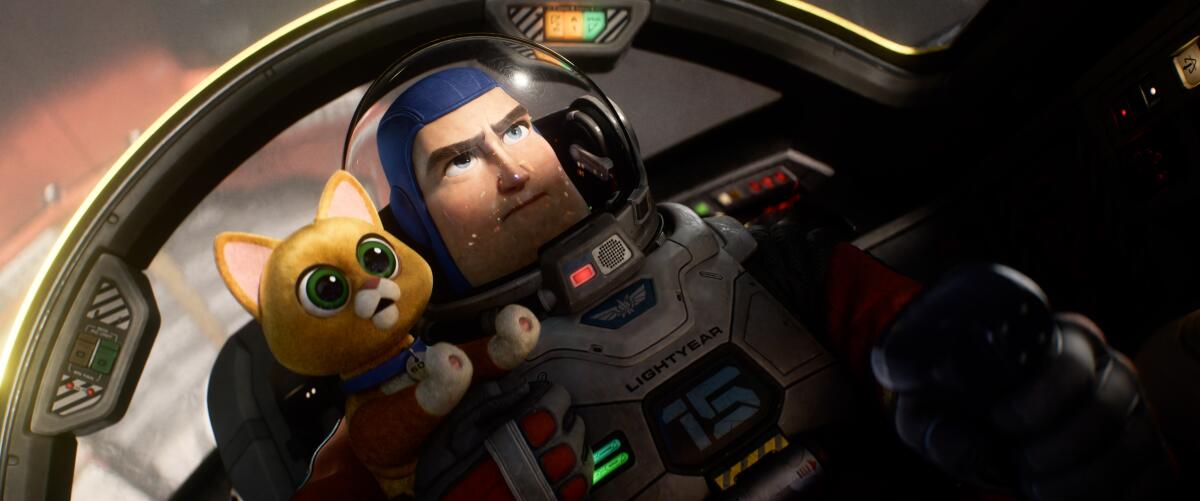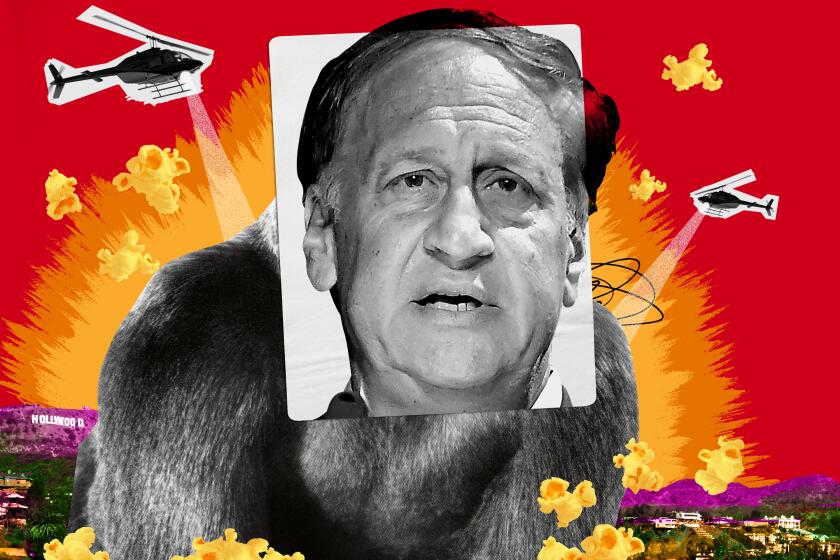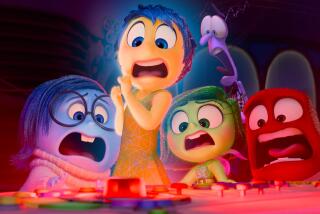Why ‘Lightyear’ disappointed at the box office for Disney and Pixar

“Solo: A Star Wars Story.” “Fast & Furious Presents: Hobbs & Shaw.” These days, as Hollywood milks its intellectual property for all its worth, many movie franchises have produced that one spinoff that pushed the limits of a connected film universe.
Now “Lightyear” has become that film for Pixar Animation Studios’ “Toy Story” series, which for 27 years has been a boon to the Walt Disney Co.-owned computer animation powerhouse.
“Lightyear,” with Chris Evans voicing the famous Space Ranger, grossed $51 million in North American ticket sales Friday through Sunday, a disappointing result considering analysts had predicted an opening weekend of about $70 million.
Including international sales, the film collected $85.6 million, according to studio estimates. Domestically, it failed to top “Jurassic World Dominion” for the No. 1 spot on the charts, despite poor reviews for the dino-sequel, which won its second weekend in a row.
Adam Aron rode the meme stock wave to rescue AMC. With his embrace of NFTs and cryptocurrency, plus a campy Nicole Kidman ad, he’s a polarizing figure.
The Pixar film’s modest opening is an unexpected headache for Disney, as the company starts bringing its animated movies exclusively to theaters again. “Lightyear” was the first Pixar film to get an exclusive theatrical release since 2020’s “Onward.” The most recent Pixar release, the acclaimed “Turning Red,” premiered exclusively on Disney+, an example of the company using its animation prowess to boost its high-priority streaming business.
While not a full-blown intergalactic disaster, “Lightyear” is a rare miss for the “Toy Story” series, the first of which revolutionized computer animation, leading to the 3-D style supplanting the more traditional Disney hand-drawn look for good. The previous two entries, “Toy Story 3” and “Toy Story 4,” which appealed strongly to families and adults without kids, each grossed more than $1 billion in global ticket sales.
So what happened?
“Lightyear” was always going to be at a disadvantage compared with other “Toy Story” movies. The new flick doesn’t have Woody, Jessie or other favorite characters, and it no longer has Tim Allen voicing the character of Buzz, who in this movie is an actual sci-fi hero, rather than just a toy.
Mubi’s cinema subscription service, meant to support struggling indies, comes to Los Angeles. Plus: Drama at Disney as Chapek moves to solidify control.
Spinoffs generally don’t do as well as their main franchise counterparts. “Solo: A Star Wars Story” was a major disappointment for Disney and Lucasfilm when the company tried to peel off the popular Han Solo character for his own origin story. Universal’s “Hobbs & Shaw” did better, grossing a solid $759 million globally, but without Vin Diesel and Michelle Rodriguez, it couldn’t reach the $1-billion-plus heights of “Fate of the Furious” or “Furious 7.”
An exception to the rule is “Minions,” which managed to top all three “Despicable Me” movies with its $1.16-billion run. Illumination Entertainment will test the series’ breaking point again this summer with a prequel, “Minions: The Rise of Gru.”
Buzz Lightyear is voiced by Chris Evans, and he’s not a toy, in his own ‘Toy Story’ spinoff adventure.
“‘Toy Story’ defied gravity at the box office during its 27 year run, each episode topping the last, the last two clearing a billion dollars worldwide,” said David A. Gross, head of movie consultancy Franchise Entertainment Research in an email. “But like all spin-offs, the ‘Lightyear’ story is narrower now, Tim Allen’s iconic voice has been replaced, and Woody is gone.”
Marketing “Lightyear” could have been an issue too. The concept of “Lightyear” was a little challenging to explain. It’s led by the character Buzz Lightyear, but not the toy audiences know from the earlier films — it’s the guy the toy is based on, starring in his own adventure. But if audiences think that concept is complicated, they ought to try following a Marvel movie nowadays. At least “Lightyear’s” title is more concise than “Doctor Strange in the Multiverse of Madness.”
The main problem seems to be that the the buzz (sorry) for this installment just wasn’t as good it was for the four main “Toy Story” movies. It got a 76% Rotten Tomatoes score, which for other studios is fine, but for Pixar, it’s more of a gentleman’s C. The Times’ critic Justin Chang wrote that “though visually grander and more cosmic in scale than the ‘Toy Story’ quadrilogy, its story feels thinner and more generic.”
According to Comscore’s PostTrak audience exit polling data, the movie simply didn’t play as well with audiences as the typical family movie. As is often the case, dissecting why a movie underperformed is not terribly complicated. Sometimes films just don’t connect the way the studios hope, no matter what familiar faces are in the cockpit.
More to Read
Inside the business of entertainment
The Wide Shot brings you news, analysis and insights on everything from streaming wars to production — and what it all means for the future.
You may occasionally receive promotional content from the Los Angeles Times.














